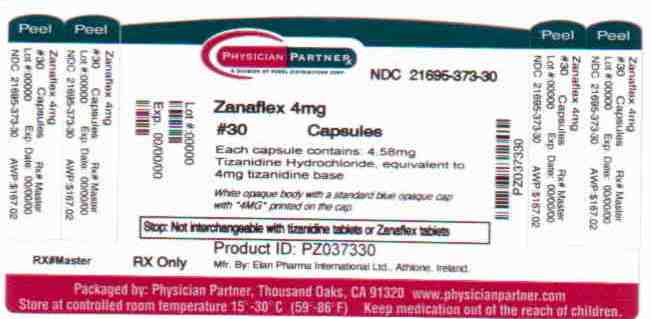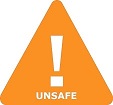
Zanaflex | Tizanidine Hydrochloride Capsule, Gelatin Coated while Breastfeeding
What is Zanaflex | Tizanidine Hydrochloride Capsule, Gelatin Coated used for?
Can I continue breastfeeding if I am using Zanaflex | Tizanidine Hydrochloride Capsule, Gelatin Coated? How long does it stays in breast milk?

NURSING MOTHERS It is not known whether tizanidine is excreted in human milk, although as a lipid soluble drug, it might be expected to pass into breast milk.
Zanaflex | Tizanidine Hydrochloride Capsule, Gelatin Coated Breastfeeding Analsys
Tizanidine hydrochloride while Breastfeeding
UnsafeCAS Number: 64461-82-1
Centrally acting muscle relaxant. Since the last update we have not found published data on its excretion in breast milk. Its pharmacokinetic data: low molecular weight, high liposolubility (Acorda 2006), makes it probable that it could pass to milk in potentially significant quantities. During breastfeeding, it seems prudent to avoid it (Hutchinson 2013) or to use it very sporadically and limited to sufficient minimum doses, monitoring for possible sedation of the infant, especially during the first 3 months of life.
I am nursing mother and I have already used Zanaflex | Tizanidine Hydrochloride Capsule, Gelatin Coated, what should I do?
If you observer abnormal behavior or any other health issue in infant then you should immediately call 911 or contact other contact other emergency service provider in your area otherwise closely monitor the baby and inform your doctor about your Zanaflex | Tizanidine Hydrochloride Capsule, Gelatin Coated usage and time interval of breastfeeding.
My health care provider has asked me to use Zanaflex | Tizanidine Hydrochloride Capsule, Gelatin Coated, what to do?
If your doctor knows that you are breastfeeding mother and still prescribes Zanaflex | Tizanidine Hydrochloride Capsule, Gelatin Coated then there must be good reason for that as Zanaflex | Tizanidine Hydrochloride Capsule, Gelatin Coated is considered unsafe, It usually happens when doctor finds that overall advantage of taking
If I am using Zanaflex | Tizanidine Hydrochloride Capsule, Gelatin Coated, will my baby need extra monitoring?
Yes, Extra monitoring is required if mother is using Zanaflex | Tizanidine Hydrochloride Capsule, Gelatin Coated and breastfeeding as it is considered unsafe for baby.
Who can I talk to if I have questions about usage of Zanaflex | Tizanidine Hydrochloride Capsule, Gelatin Coated in breastfeeding?
US
National Womens Health and Breastfeeding Helpline: 800-994-9662 (TDD 888-220-5446) 9 a.m. and 6 p.m. ET, Monday through Friday
UK
National Breastfeeding Helpline: 0300-100-0212 9.30am to 9.30pm, daily
Association of Breastfeeding Mothers: 0300-330-5453
La Leche League: 0345-120-2918
The Breastfeeding Network supporter line in Bengali and Sylheti: 0300-456-2421
National Childbirth Trust (NCT): 0300-330-0700
Australia
National Breastfeeding Helpline: 1800-686-268 24 hours a day, 7 days a week
Canada
Telehealth Ontario for breastfeeding: 1-866-797-0000 24 hours a day, 7 days a week
